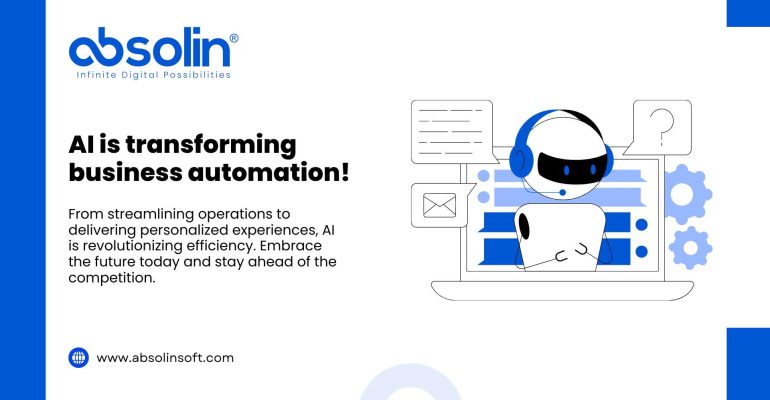The Role of AI in Revolutionizing Business Automation: A New Era of Efficiency

The Role of AI in Revolutionizing Business Automation: A New Era of Efficiency
In today’s fast-paced business environment, efficiency is key to maintaining a competitive edge. One technology that has emerged as a game-changer in this arena is Artificial Intelligence (AI). By automating complex processes, AI is not only transforming how businesses operate but also setting new standards for efficiency and productivity. This blog explores the revolutionary impact of AI on business automation and how it is shaping a new era of efficiency.
Understanding AI in Business Automation
AI refers to the capability of a machine to imitate intelligent human behavior. In the context of business automation, it encompasses a range of technologies, including machine learning, natural language processing, and robotics. These technologies enable systems to perform tasks that typically require human intelligence, such as data analysis, decision-making, and process management.
Enhancing Efficiency through Intelligent Automation
- Streamlining Operations
One of the most significant advantages of AI in business automation is its ability to streamline operations. By automating repetitive and mundane tasks, AI frees up human resources to focus on more strategic activities. For instance, AI-powered systems can handle routine customer service inquiries, process large volumes of data, and manage supply chain logistics with minimal human intervention. - Data-Driven Decision Making
AI excels in processing and analyzing vast amounts of data quickly and accurately. This capability allows businesses to gain valuable insights into their operations, customer behavior, and market trends. AI-driven analytics tools can identify patterns and trends that might be missed by human analysts, enabling more informed and timely decision-making. - Predictive Maintenance
In industries with heavy machinery and equipment, AI can play a crucial role in predictive maintenance. By analyzing data from sensors and historical maintenance records, AI systems can predict when a machine is likely to fail and schedule maintenance before a breakdown occurs. This proactive approach reduces downtime and extends the lifespan of equipment. - Personalized Customer Experiences
AI enables businesses to deliver highly personalized customer experiences. Through machine learning algorithms, AI can analyze customer data to understand preferences and behavior. This information can be used to tailor marketing campaigns, recommend products, and provide customized support, enhancing customer satisfaction and loyalty. - Improving Accuracy and Reducing Errors
Automation powered by AI reduces the likelihood of human error. For example, in financial services, AI algorithms can process transactions, manage accounts, and detect fraud with high precision. This increased accuracy not only improves operational efficiency but also helps maintain regulatory compliance.
Real-World Examples of AI in Business Automation
Several companies have already embraced AI to revolutionize their business processes:
- Amazon: Uses AI for inventory management, demand forecasting, and optimizing its supply chain. Its AI-driven recommendation engine also enhances the shopping experience for customers.
- Netflix: Leverages AI to analyze viewing patterns and provide personalized content recommendations, keeping users engaged and satisfied.
- Siemens: Employs AI for predictive maintenance in its manufacturing plants, reducing downtime and improving productivity.
The Future of AI in Business Automation
As AI technology continues to advance, its role in business automation will only grow more significant. Emerging trends such as AI-driven robotics, advanced machine learning models, and enhanced natural language processing will further push the boundaries of automation. Businesses that proactively adopt and integrate these technologies will be better positioned to thrive in an increasingly competitive landscape.
Conclusion
AI is undeniably revolutionizing business automation, ushering in a new era of efficiency and productivity. By streamlining operations, enhancing decision-making, and providing personalized experiences, AI transforms how businesses operate and compete. As technology evolves, the potential for AI to drive further advancements in automation is immense. Embracing AI today can pave the way for a more efficient and prosperous future for businesses across industries.





